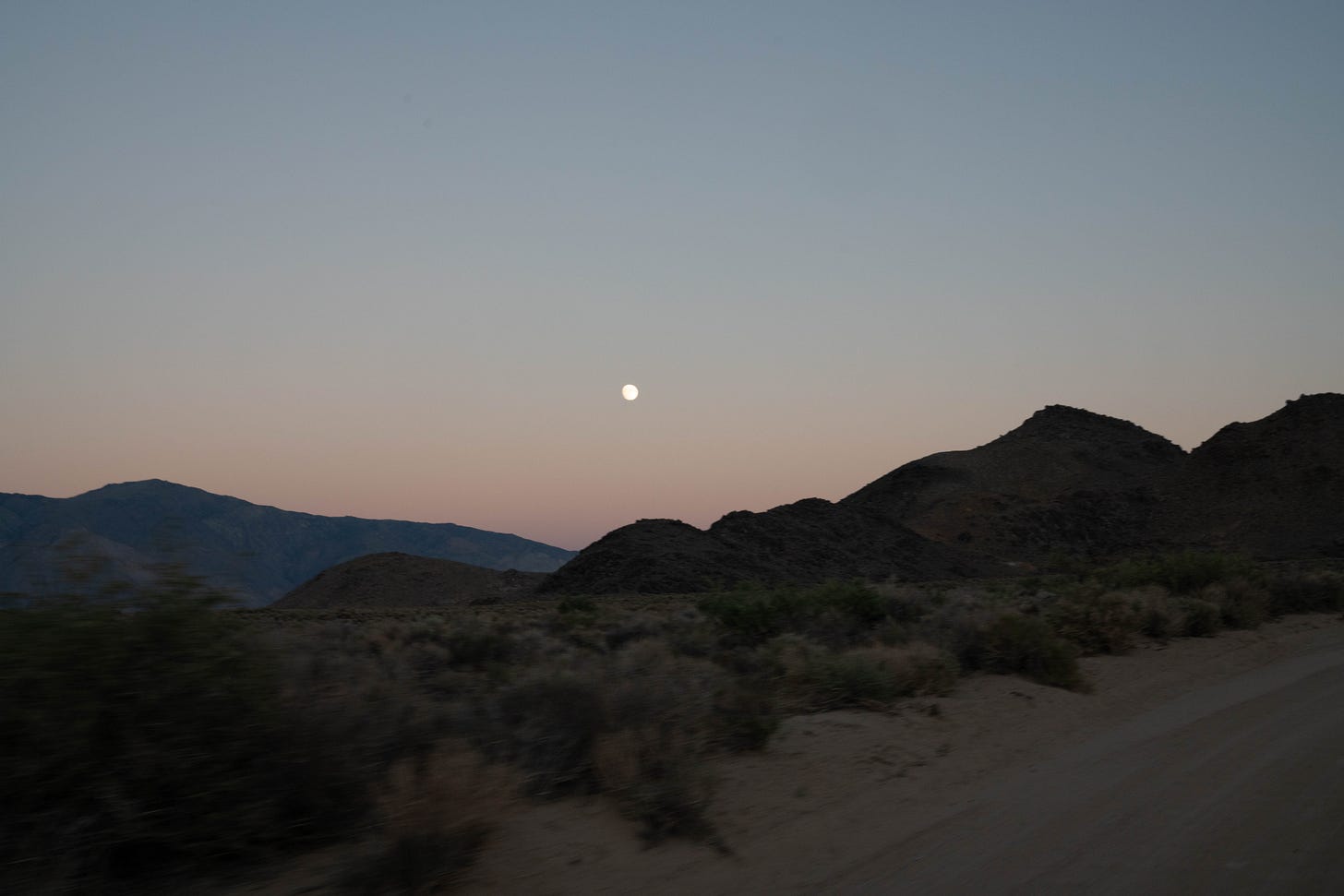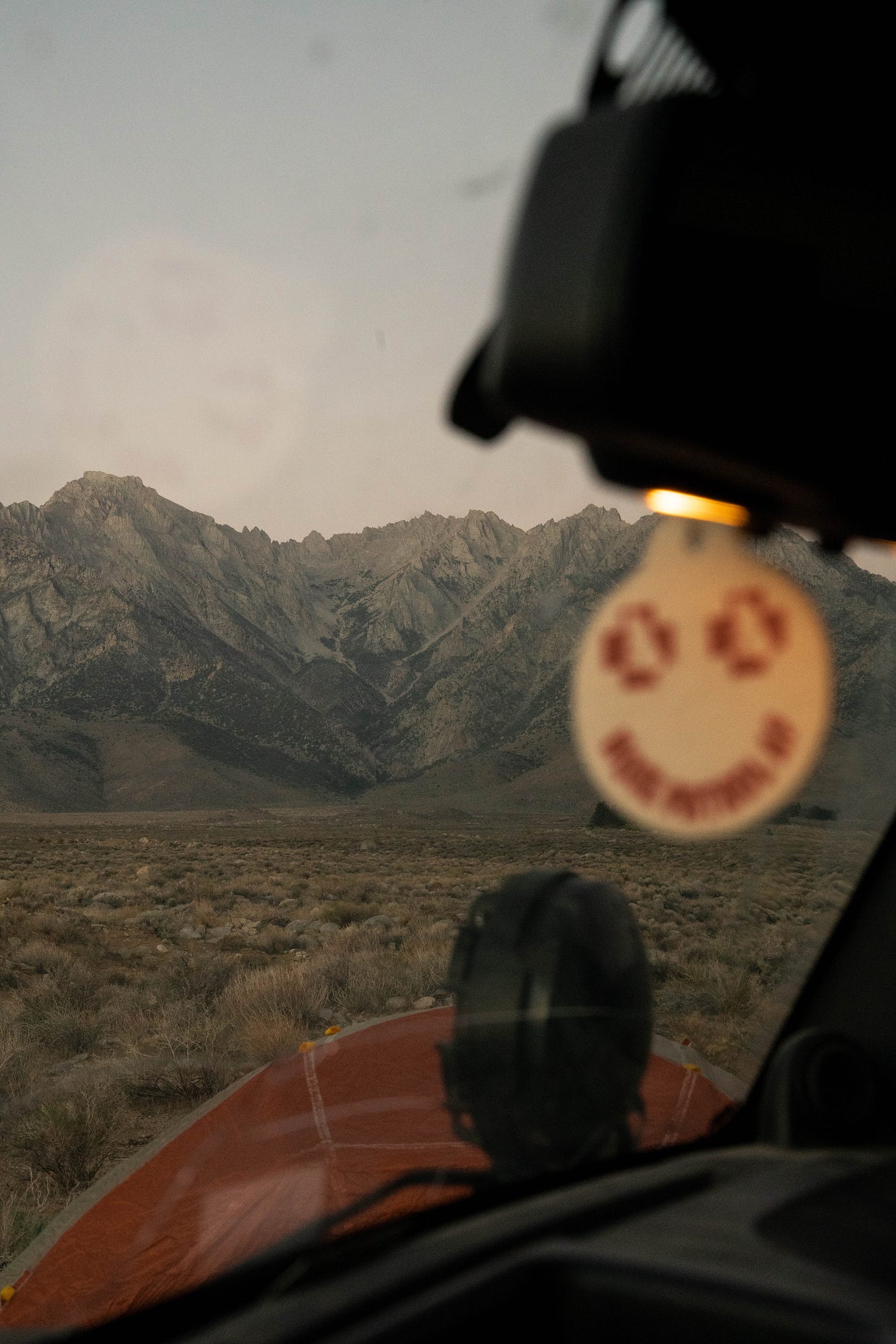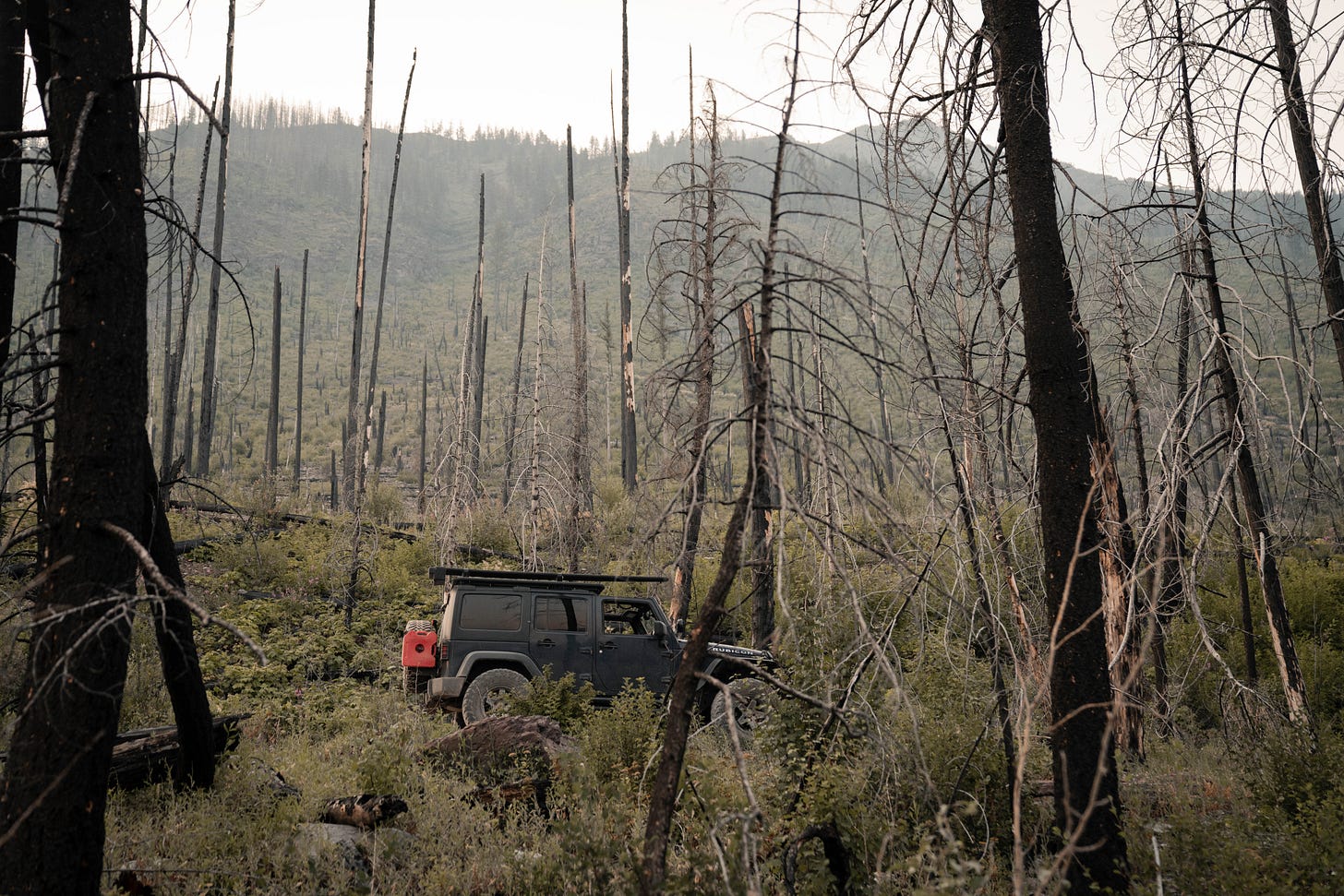I am an expert in absolutely nothing. Living far from expertise is the greatest position I’ve ever found myself in. It’s a mindset, a worldview, and the most complete, encompassing way to experience the present.
I spent time this weekend going through old photos, finding memories and compositions that I overlooked. I found the thumbnail of this photo. Intrigued by the sunset, I stared at it for a while… becoming more and more displeased the longer I looked. It’s underexposed. The foreground is blurry. It’s not even that interesting, so no wonder I overlooked it the first time. “This wasn’t even taken that long ago. I’m a better photographer than this?” I thought.
Then I remembered the context: taken while driving around the Sierra, desperately looking for a campsite before sunset. Not wanting to stop the car, but also wanting to capture the landscape at dusk, I snapped a half blurry driver’s side window shot. In recalling those details, I started to think of this photo favorably. It’s still blurry, but now I recall how that October air felt rushing through my windows… how it felt the next morning to thaw out with cowboy coffee… and how this was the first moment I enjoyed California.
So What? It’s just Soba.
Would’ve been my response if you asked me about Japanese noodles 2 nights ago… but through my midnight web surfing (not a great habit), I stumbled across a real gem: Koichi Ishii’s Soba noodle process. (I watched a video interview too, but can’t find it as I’m writing this).
The dude’s a f*cking wizard with buckwheat. He imported special Japanese appliances, cookware, and ceramics for the sake of crafting noodles. He sources the best grain in the States… making the noodles by hand at 5am… milling, rolling dough, and cutting portions with this incredibly badass knife that I’m now convinced I need. It’s mesmerizing. There’s no greater poetry than watching someone execute their craft with mastery — It’s legitimate art, but it usually goes unnoticed.
My favorite part of this Soba noodle rabbit hole was hearing how he described his work: “My level is not super high. Still learning.” At one point, he even said people don’t need to understand how much work goes into his noodles. “It doesn’t matter how hard it is” as long as people like them. He went on to describe the Japanese word, Shokunin. A simple English translation would equate this to an artisan or craftsman, but if you’re gonna describe it that way you might as well call The Sistine Chapel “a big church mural”. It’s so much more than that.
Shokunin cannot be described with one mere word. It’s a mentality, it’s humility and purpose, a conscious pride to carry on tradition, and an infinite effort towards unattainable mastery. It’s the reason you’d import kitchen equipment from Japan, meticulously cut noodles at 5am, and opt to go about things “the hard way”. A Shokunin would never label themself as the “master” of anything, they’re always working to improve. If a veteran Soba maker from Yamagata, Japan… with years of experience committed to ONE food isn’t a master, I have no shame saying I’m the master of nothing. I actually take pride in that.
Everything in today’s world is designed to be faster, easier, and more convenient. You don’t even realize how desensitizing the modern world is until you do something by ways of old. Do you make your own paper? Navigate with a paper map? Render tallow? Take tintype photographs? Churn your own butter? Probably not (good on you if you do, though). These aren’t even considerations on the modern person’s “to-do” list. That’s such a luxury. I’m not saying the world should revert completely to tradition — I recognize the benefits of modern advances. But the concern I think about often is this:
The Shokunin is the dying breed. Modern solutions rid our problems. If they rid them all, then what? The Shokunin dies, and so does the connection with how you spend your time, how you live your life, and your experience of each present moment. A world with too much time and too few problems creates mountains out of mole hills. More time focused on honing a craft… more intention behind what my hands touch, mouth eats, or pen writes… leaves less time to worry about the countless “sky is falling” topics circulating the airwaves. I like life better that way.
Imperfection — harbored in skillset, old photographs, or a homemade meal — still has value. Accepting that opens up your world of appreciation. You may even look back on a blurry sunset and start to think of it fondly.
More overlooked photos, featuring the OG Trout-Mobile:
Here are some of my favorite “forgotten” arts. Fun to learn about. Even more fun to appreciate how much goes into them:
Carburetor Tuning











good looking trout!
I think you'll enjoy this - soba master Shuichi Kotani preparing his signature buckwheat noodles: https://www.youtube.com/watch?v=YbIaYqiGU8o